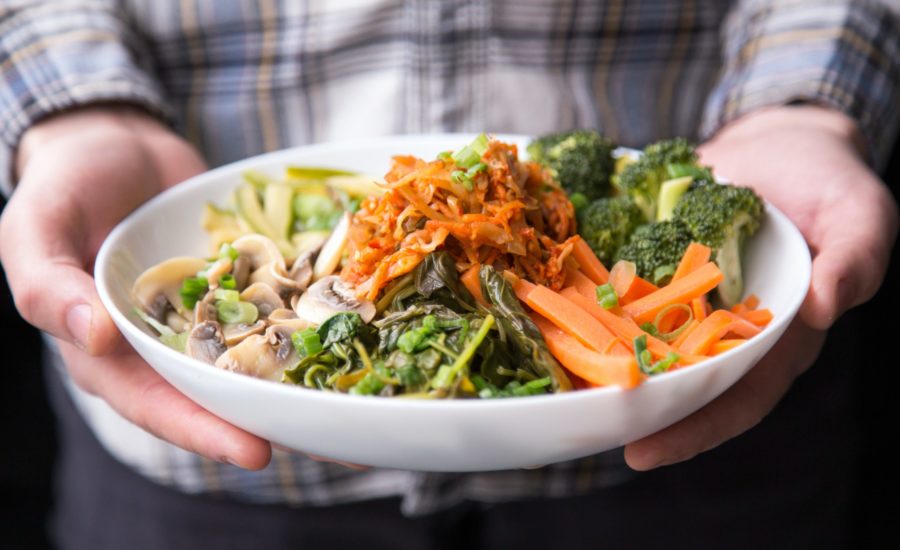Take plant-based eating to the bank
How going vegetarian has broadened this family’s palate—and shrunk their grocery bills during COVID-19.
Advertisement
How going vegetarian has broadened this family’s palate—and shrunk their grocery bills during COVID-19.

Share this article Share on Facebook Share on Twitter Share on Linkedin Share on Reddit Share on Email
I’m happy this family stepped outside their box. Educating yourself is key to breaking negative habits. Just to touch on a few things…beyond meat is not soy based it is one of its defining factors (it is pricey) and plant based for some means no animal by products at all, not even leather. Vegetarian and vegan diets can still be unhealthy depending on what one puts in to their system. Overall I am just happy that people are attempting to step outside their conventional way of eating and work towards their health. Educating yourself is key, it never stops.
Over 95% of those who die from COVID-19 have pre-existing conditions such as obesity, type 2 diabetes, hypertension, heart disease, asthma, etc. that are totally preventable and in most cases reversible within a matter of weeks (thus potentially reducing your risk of dying from this virus) with a 100% whole plant based diet that consists of whole grains, legumes, green and yellow vegetables, fruits, starchy vegetables (potatoes, sweet potatoes, corn, rice, etc.) limited amounts of nuts & seeds, adequate water intake, along with a Vitamin B12 daily supplement and adequate sunshine, exercise and sleep Along with the avoidance of all animal products (meat, poultry, dairy (especially cheese), fish, all processed foods and oils). So this lifestyle change will not only improve your pocket book, the environment, the welfare of animals it may very well keep you ALIVE!
Vegetarianism is a way to go.
Ask scientists to health experts to your financial planner to green earth movement er to even Animals them seleves.
it’s so true for so many reasons.
You get blessings even from animals you’re saving from being killed and taking care of them.
Also you feel self respect for yourself by doing so.
If you really want to be and keep your self vegetarian,
Then ask Hindus from India – they are vegetarians for hundreds and hundreds of generations.
They have all the recipes which will give you really balanced food )nutrition wise)
Otherwise you may lack some vitamin here and there.
Good choice keep it up and
good luck
Beyond Meat products aren’t soy based. They are Pea based. Big difference, as soy is considered to be less healthy according to some sources. Just saying.
Anyone who is eating a lot of beans should seriously consider a pressure cooker to significantly reduce costs, eat healthier beans and save the environment (no more tins and the related manufacturing, transport, and garbage). Instant Pots make it easy – delicious beans within 15-20 minutes with no presoaking. If I have extra, I just freeze them and pull them out as I need them.